Intelligent, Hardworking, Gentle, and Loving All Into One!
The kind and gentle face of a Golden Retriever goes way beyond physical appearances. These Dogs are able to win over just about any heart of a Dog lover. While they can be commonly sighted and widely owned, don't you wonder why and how canine lovers seem to have nothing bad to say about this breed?
 |
| Source |
The Golden Retriever
The first Golden
Retrievers were bred in Scotland during the mid-19th century, when
Wild Fowl Hunting (the sport of hunting game birds) was popular amongst the rich and noble. They
were then bred with the best Water Spaniels— resulting in the breed we know of today.
Fun Fact #1 The initial Retriever breed did not possess skills to perform the tasks of fetching downed birds from the allocated hunting grounds of both land and water.
The belief of breeding Golden Retrievers involving Russian Trackers was dismissed by precise records of its breeder, Dudley
Majoribanks, 1st Baron of Tweedmouth. Gun improvements in the 1800's meant only one thing, the downed game (hunted animals) were further and tougher to retrieve.
 |
| Source |
Majoribanks began his conquest of breeding the best ideal hunting retriever breed that were not only active and robust, but also came eqquipped with the ability to perform soft
retrievals that did not damage the birds. Golden Retrievers were accepted by The Kennel Club of England in 1903— first exhibited in 1908 and recognized
as an official breed in 1911.
The first Golden Retriever to be recognised by AKC in America only happened 14 years later, in 1925. Archibald Majoribanks brought his Golden Retriever named Lady to Canada in 1881, gaining recognition only in 1927.
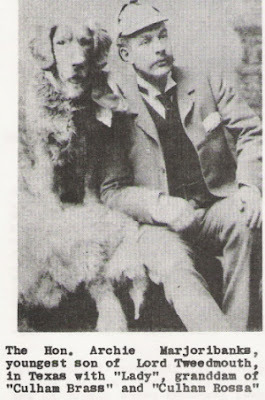 |
| Source |
Appearance: Three Types Of Golden Retrievers
Today, breeding for
different registry standards has resulted in 3 sub-types of Golden Retrievers,
and this is how you can roughly tell them apart.
1. British Golden Retrievers — First of its breed
with broader skulls and a more muscular body, the British sub-type is meant to be a great sport dog. They generally have a lighter coloured coat and a
very chiseled muzzle with dark round eyes. The average height from the withers
(tallest point in between shoulder blades to fore legs) of an adult Male is 56
to 61 cm, and Females 51 to 56 cm.
2. American Golden Retriever — Darker coat of Gold and a less muscular body. A common standard in many countries, as the requirements are very specific. The American sub-type has slightly slanted, triangular eyes as compared to their British
counterparts. Adult Males stand at 58 to 61 cm, Females at 55 to 27
cm.
3. Canadian Golden Retriever — Tallest amongst
all three types, adult Males stand at 58 to 61 cm, Females at 55 to 57
cm. The Canadian sub-type has thinner coats as compared to
American and British sub-types of Golden Retrievers.
Grooming A Golden Retriever
Coat — As their names
states, Golden Retrievers are well, Golden ☺. This Gold hue ranges from a shade
of Light to Dark. General feathering of hair is light at
the back of forelegs. Their necks, bottom of tail, and back of hind legs
have heavier feathering.
Fun Fact #2 Top coats are water resistant and has a slight wave to it, while their soft undercoats serve dual purposes— to keep them cool and airy in hot weathers, and warm in cold climates.
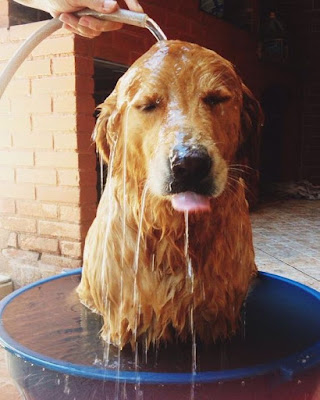 |
| Source |
All types of Golden Retrievers
shed lightly all year round. Regular combing and a bath once every month or two
keeps their coats clean and healthy. Brushing prevents excessive matting and knotting
or their coats. Practice good oral hygiene and make sure their
ears are cleaned— with a Vet-approved toothpaste and cleanser respectively. Nails should be clipped before they start to clack on the ground.
If you are unsure how to perform these tasks, approach a trusted Groomer or Veterinarian for professional service!
Personality Of A Golden Retriever
A gentle giant is what we can observe when we have close encounters a Goldie. Is it still to anyone's surprise that they are indeed loved by the masses?☺ Coupled with high intelligence and a workaholic mind, Golden Retrievers excel in learning tricks, including training for obedience and patience. On top of that, they are also known to be xtremely sociable and great with children and other pets— thus making them an excellent choice for a house Pet.
 |
| Source |
You might also be interested in:
Your Stories Can Be Heard Too
Have YOU tried any of these services? Your voices are important to us and the Pets community! Our readers are encouraged to share their Pet-related reviews of a place and its services, experiences, even lifestyle tips and tricks to better our Pets lives, on our platform, one paw at a time. Be a part of an educational and informative Pets community because at ThePetsDialogue, your voices could make a huge difference on a global scale.
Write to us at [email protected] today!
Our website is a work in progress, however, if you did find our articles interesting please do feel free to share! For more Pet care tips and other Pet-related articles, head to www.thepetsdialogue.com ☺
Disclaimer
This article was written with informational purposes, as you know, we’d love to share our collective research and experiences as fellow Pet owners and lovers. It is not meant to alternate in any way as advice or diagnosis of Professionals.
ThePetsDialogue claims no credit for images posted on this article unless otherwise displayed/stated. All rights go to respective owners as mentioned. If you do not wish for your image(s) to appear here do drop us an e-mail and it will be removed promptly. If you do wish to use any of our original published information, you are welcome to contact us!




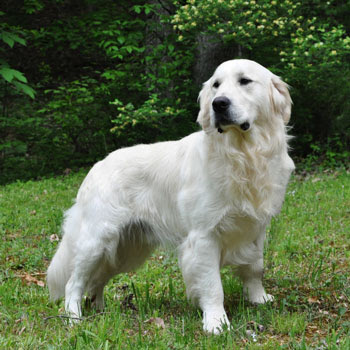
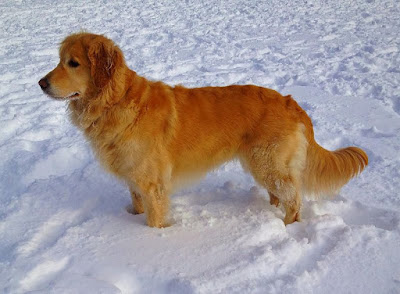
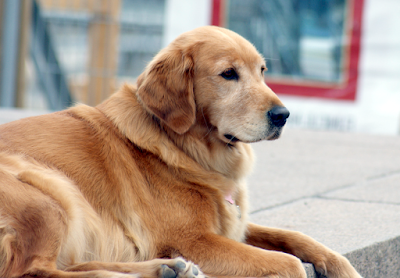
No comments:
Post a Comment